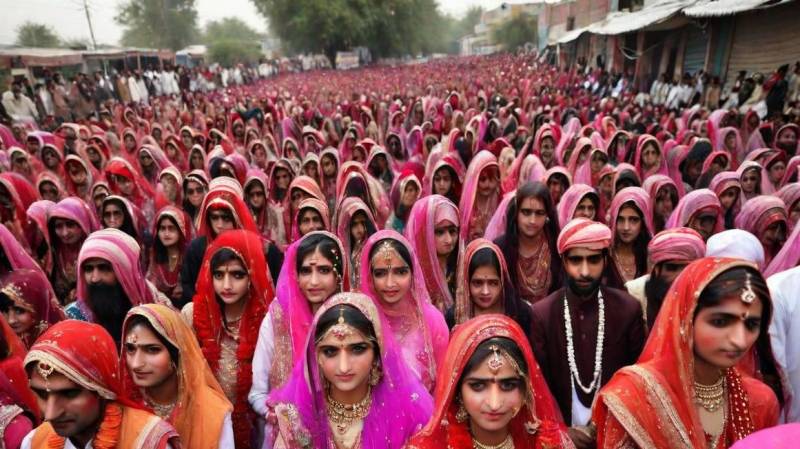
The disclosure of an unverified figure — 10 million unmarried Pakistani women over the age of 35 — has set off intense debates across social media and news platforms. While the sheer scale of this number is striking, the lack of concrete evidence requires a cautious approach to discussion and interpretation. To understand the implications of this figure, we need to critically examine the societal factors at play to ensure that our arguments are grounded in nuanced, well-substantiated reasoning.
One key area of concern is the concept of 'reification', as introduced by Marxist philosopher Georg Lukács. Reification occurs when human relationships and experiences are reduced to mere objects or commodities, stripping them of their intrinsic value. In Pakistan, the commodification of marriage has been a persistent issue, with the practice of dowries and societal pressures placing significant constraints on women's autonomy and self-worth. Yet, to attribute the "10 million unmarried women" statistic solely to reification or to the commodification of marriage would be an oversimplification of a complex issue.
Marriage in Pakistan has historically been seen as a sacred union, but it can sometimes take on a transactional aspect, where dowries, social status, and familial prestige play pivotal roles. This can create undue pressure on women and their families, leading to a situation where rejecting the path of traditional marriage is viewed as rebellion. The ensuing societal exclusion or stigma can reinforce patriarchal norms, thereby diminishing opportunities available to women for education and career advancement.
Proposals that promote polygamy or blame feminism for destabilising traditional values only sustain the status quo and do not address the deeper societal issues at play
The "10 million unmarried women" debate has elicited a range of responses, some of which reflect a reification mindset. Proposals that promote polygamy or blame feminism for destabilising traditional values illustrate this approach, seeking to maintain the status quo instead of addressing deeper societal issues. It must be acknowledged that societal attitudes toward marriage and gender roles are multifaceted and influenced by various factors, including economic conditions, education, and cultural norms.
To move beyond simplistic narratives, we need to consider the broader context and listen to diverse voices. There are advocates for a shift in perspective and those calling for a society that values every woman's individuality and contributions. This perspective resonates with Lukács' critique of reification by promoting a more human-centred approach to social relationships. It challenges us to break free from commodification and create a society where a woman's worth is not defined by marital status but by their character and contributions.
Moving forward, Pakistan must address the deeply ingrained ideologies that perpetuate reification and patriarchal domination. This involves advocating for women's rights to choose their paths without societal pressure. A society that fosters gender equality and supports women's aspirations is not only more just but also contributes to broader socioeconomic progress.
Ultimately, the debate around "10 million unmarried women" should serve as a catalyst for a more inclusive and thoughtful conversation about marriage and gender roles in Pakistan. It should encourage us to explore the cultural and societal factors that influence these trends while avoiding oversimplification and stereotypes. By focusing on evidence-based discussions and fostering a respectful dialogue, Pakistan can work toward a society that respects women's autonomy and values their contributions to Pakistani society.

